


Health Benefits of Drinking Coffee in the Morning
Drinking coffee in the morning can offer several health benefits, particularly in terms of alertness, mood, brain function, and exercise performance. The caffeine in coffee blocks adenosine, a neurotransmitter that promotes sleep, thereby preventing drowsiness and stimulating the central nervous system. This leads to increased alertness, improved mood, and enhanced cognitive functions such as reaction time, vigilance, attention, learning, and general mental function. Additionally, caffeine can boost exercise performance by promoting fat metabolism and improving nutrient transport, which increases energy levels and physical endurance.
Despite these benefits, there are some temporary negative effects associated with morning coffee consumption. Coffee can temporarily raise blood pressure due to its caffeine content and may cause digestive issues like heartburn, acid reflux, and indigestion by increasing stomach acid production. These effects are particularly noticeable in individuals who are sensitive to coffee. Additionally, coffee can cause a temporary rise in cortisol levels, the stress hormone, but this is unlikely to result in long-term health problems.
Potential Negative Effects of Drinking Coffee in the Morning
While coffee can offer several benefits, it also has potential negative effects, especially when consumed in excess. One of the primary concerns is digestive issues. Coffee can increase the production of stomach acid, which may exacerbate symptoms of acid reflux, heartburn, and indigestion. It also has a laxative effect due to the release of gastrin, leading to loose stools or diarrhea, particularly in large doses. Additionally, coffee can increase colon motility, often resulting in a need to use the bathroom shortly after consumption. These effects are more pronounced in individuals who are sensitive to coffee.
Excessive coffee consumption can also contribute to anxiety, restlessness, and heart palpitations. Caffeine increases alertness by blocking adenosine and triggering the release of adrenaline, the 'fight-or-flight' hormone. At higher doses, these effects can become more pronounced, leading to anxiety and nervousness. Additionally, caffeine can cause rapid breathing and increase stress levels, which can further contribute to feelings of restlessness and heart palpitations. Coffee can also cause a temporary rise in cortisol levels, which, if consumed late in the day, can disrupt sleep patterns. Excessive intake may lead to high blood pressure and other health issues.
How Caffeine Affects the Body and Mind
Caffeine acts as a central nervous system stimulant by blocking adenosine receptors in the brain. Adenosine is a neurotransmitter that promotes sleep by inhibiting neural activity. By preventing adenosine from binding to its receptors, caffeine prevents the slowing down of neural activity, thereby promoting alertness. Additionally, caffeine increases the release of other neurotransmitters such as noradrenaline, dopamine, and serotonin, which can improve mood, reaction time, vigilance, attention, and general mental function. Caffeine also increases circulating epinephrine (adrenaline), enhancing focus and energy while reducing tiredness.

However, caffeine consumption can also have negative effects. High doses can lead to jitteriness, anxiety, and a fast heart rate due to the increased release of adrenaline. Headaches are often associated with caffeine withdrawal, as the brain adjusts to changes in blood flow. Sleep disturbances can result from caffeine consumption, as it can interfere with the ability to fall asleep and stay asleep. Regular caffeine consumption can lead to tolerance, where higher doses are needed to achieve the same effects, and withdrawal symptoms such as headaches, fatigue, difficulty concentrating, and mood changes when caffeine intake is reduced or stopped.
Long-Term Health Risks and Benefits of Regular Coffee Consumption
Regular coffee consumption carries both potential risks and benefits, largely influenced by its caffeine content. Long-term health risks include anxiety, nervousness, jitteriness, increased stress levels, and temporary increases in blood pressure. Pregnant women should be particularly cautious, as high caffeine intake is associated with low birth weight, preterm birth, and pregnancy loss. There is also a potential risk of fractures in women. However, for most people, moderate coffee consumption is generally safe and does not pose significant health risks.
On the other hand, regular coffee consumption offers several protective benefits against diseases such as Parkinson's, type 2 diabetes, liver disease, heart attack, and stroke. Coffee contains antioxidants like polyphenols, which help protect the body against free radical damage and inflammation. This anti-inflammatory effect is linked to a lower risk of metabolic syndrome, including conditions like type 2 diabetes and obesity. Additionally, caffeine may improve brain function and mood, potentially offering protection against neurodegenerative diseases like Parkinson's. Nutrients in coffee, such as riboflavin, niacin, magnesium, and potassium, also contribute to its health benefits.

Impact of Coffee on Cardiovascular Health
Recent studies have shown that regular coffee consumption is associated with a decreased risk of developing hypertension, heart failure, and atrial fibrillation. Moderate coffee intake, typically around two to three cups a day, is linked to a reduced risk of heart failure and heart disease. This protective effect is attributed to the antioxidant properties of coffee compounds, which help reduce inflammation and improve overall cardiovascular health. However, the relationship between coffee consumption and coronary heart disease is inconsistent, with some studies indicating a J-shaped association where moderate consumption decreases risk and heavy consumption increases it. The manner of coffee preparation also plays a role, with filtered coffee being more beneficial than unfiltered coffee due to its impact on cholesterol levels.
Coffee may also improve blood vessel function and blood pressure control through its anti-inflammatory and antiatherogenic properties. Moderate coffee consumption is associated with a decreased risk of hypertension and heart failure. Filtered coffee, in particular, has been shown to increase high-density lipoprotein–mediated cholesterol efflux from macrophages, which benefits blood vessel function. Although coffee can cause a transient increase in blood pressure, it does not lead to long-term hypertension and may even reduce the risk of developing it, especially in non-smokers and fast metabolizers of caffeine.
How Coffee Consumption Affects Sleep Patterns
Caffeine, the primary active ingredient in coffee, affects sleep patterns by blocking adenosine receptors in the brain. Adenosine is a neurotransmitter that promotes sleep by inhibiting neural activity. When caffeine competes with adenosine to bind to these receptors, it prevents adenosine from slowing down neural activity, thereby promoting wakefulness and alertness. This interaction can prolong sleep latency, reduce sleep efficiency, and alter sleep architecture by reducing slow-wave activity (SWA) and increasing activity in the frequency range of sleep spindles.
Consuming coffee, especially in large amounts or close to bedtime, can lead to insomnia and negatively affect sleep quality. Caffeine can delay the onset of sleepiness and cause sleep disturbances by promoting wakefulness and inhibiting hormones that promote sleep. Drinking coffee late in the evening can delay the transition from wakefulness to sleep, and consuming it after 3 p.m. can impact sleep quality, making it harder to get restful sleep. Higher caffeine intake increases the time it takes to fall asleep and decreases total sleeping time. To avoid sleep problems, it is recommended to cut off caffeine consumption by the early afternoon.

Conclusion: Balancing the Benefits and Drawbacks of Morning Coffee
Morning coffee can be a delightful way to start the day, offering numerous benefits such as enhanced mood, increased energy levels, improved brain function, and protection against certain illnesses like type 2 diabetes and heart disease. However, it's important to be mindful of potential drawbacks, including digestive issues, increased anxiety, and disrupted sleep patterns, especially if consumed in large amounts or on an empty stomach. By understanding both the benefits and the potential side effects, you can make an informed decision about your coffee consumption and enjoy it as part of a balanced and healthy lifestyle.
Citations:
“Coffee Consumption Behavior in Young Adults: Exploring Motivations, Frequencies, and Reporting Adverse Effects and Withdrawal Symptoms.” National Institutes of Health (NIH) (.gov), 5 August 2023, https://www.ncbi.nlm.nih.gov/pmc/articles/PMC10519208/.
“Caffeine: Benefits, risks, and effects.” MedicalNewsToday, https://www.medicalnewstoday.com/articles/285194. Accessed 5 August 2024.
“Does Coffee Benefit the Brain?.” Healthline, https://www.healthline.com/nutrition/coffee-brain. Accessed 5 August 2024.
“Is There a Best Time to Drink Your Coffee In the Morning?.” Houston Methodist, https://www.houstonmethodist.org/blog/articles/2024/jan/is-there-a-best-time-to-drink-your-coffee-in-the-morning/. Accessed 5 August 2024.
“Should You Drink Coffee on an Empty Stomach?.” Healthline, https://www.healthline.com/nutrition/coffee-on-empty-stomach. Accessed 5 August 2024.
“Coffee and health: What does the research say?.” Mayo Clinic, 19 March 2022, https://www.mayoclinic.org/healthy-lifestyle/nutrition-and-healthy-eating/expert-answers/coffee-and-health/faq-20058339.
“9 Side Effects of Too Much Caffeine.” Healthline, https://www.healthline.com/nutrition/caffeine-side-effects. Accessed 5 August 2024.
“How Caffeine Improves Exercise Performance.” Healthline, https://www.healthline.com/nutrition/caffeine-and-exercise. Accessed 5 August 2024.
“brain scans ....” New Scientist, https://www.newscientist.com/article/dn8401-coffees-effects-revealed-in-brain-scans/. Accessed 5 August 2024.
“Caffeine Use Disorder: A Comprehensive Review and Research Agenda.” National Institutes of Health (NIH) (.gov), 5 September 2013, https://www.ncbi.nlm.nih.gov/pmc/articles/PMC3777290/.
“Caffeine and Anxiety: How Does Your Caffeine Habit Affect Anxiety?.” Healthline, https://www.healthline.com/health/caffeine-and-anxiety. Accessed 5 August 2024.
“How Long Does Caffeine Withdrawal Last?.” Healthline, https://www.healthline.com/health/how-long-does-caffeine-withdrawal-last. Accessed 5 August 2024.
“Coffee consumption and health: umbrella review of meta-analyses of multiple health outcomes.” National Institutes of Health (NIH) (.gov), 5 August 2017, https://www.ncbi.nlm.nih.gov/pmc/articles/PMC5696634/.
“Effects of Coffee on the Gastro-Intestinal Tract: A Narrative Review and Literature Update.” National Institutes of Health (NIH) (.gov), 5 January 2022, https://www.ncbi.nlm.nih.gov/pmc/articles/PMC8778943/.
“Coffee health benefits: Diabetes, heart health, liver cancer, and more.” MedicalNewsToday, https://www.medicalnewstoday.com/articles/270202. Accessed 5 August 2024.
“Good News for Coffee Lovers: Daily Coffee May Benefit the Heart.” American College of Cardiology, 23 March 2022, https://www.acc.org/About-ACC/Press-Releases/2022/03/23/17/55/Good-News-for-Coffee-Lovers-Daily-Coffee-May-Benefit-the-Heart.
“Impact of Coffee Consumption on Cardiovascular Health.” National Institutes of Health (NIH) (.gov), https://www.ncbi.nlm.nih.gov/pmc/articles/PMC10262944/. Accessed 5 August 2024.
“Norwegian Women and Cancer Study ....” SpringerLink, 5 October 2020, https://link.springer.com/article/10.1007/s10654-020-00664-x.
“Adenosine, caffeine, and sleep–wake regulation: state of the science and perspectives.” National Institutes of Health (NIH) (.gov), 5 August 2022, https://www.ncbi.nlm.nih.gov/pmc/articles/PMC9541543/.
“Modeling the effects of caffeine on the sleep/ wake cycle.” National Institutes of Health (NIH) (.gov), https://pubmed.ncbi.nlm.nih.gov/22846267/. Accessed 5 August 2024.
“7 side effects of drinking coffee in the morning on an empty stomach.” Healthshots, 24 February 2024, https://www.healthshots.com/healthy-eating/nutrition/drinking-coffee-on-an-empty-stomach/.
“Reasons Why You Should Drink Coffee In The Morning.” Sleepy Owl Coffee, https://sleepyowl.co/blogs/news/reasons-why-you-should-drink-coffee-in-the-morning. Accessed 5 August 2024.
“Caffeine Addiction: Symptoms, Causes, Effects, Treatments, and Prevention..” Whitelight Behavioral Health, https://whitelightbh.com/resources/drug-addiction/caffeine/. Accessed 5 August 2024.
“minimize anxiety and stress – Coffee ....” Coffee with the Queen, 15 September 2020, https://thequeenbean.blog/2020/09/15/nerves-frayed-learn-how-coffee-can-help-minimize-anxiety-and-stress/.
“Effects of Caffeine on Cognitive Performance, Mood, and Alertness in Sleep-Deprived Humans.” National Institutes of Health (NIH) (.gov), https://www.ncbi.nlm.nih.gov/books/NBK209050/. Accessed 5 August 2024.
“Caffeine improves reaction time ....” SpringerLink, 5 June 2015, https://link.springer.com/article/10.1007/s00213-014-3834-5.
“7 HEALTH BENEFITS OF YOUR MORNING COFFEE.” Jamaica Blue Australia, 2 April 2019, https://jamaicablue.com.au/news/7-health-benefits-morning-coffee/.
“Caffeine sensitivity: Symptoms, causes, and management.” MedicalNewsToday, https://www.medicalnewstoday.com/articles/caffeine-sensitivity. Accessed 5 August 2024.
“9 Reasons Why (the Right Amount of) Coffee Is Good for You.” Johns Hopkins Medicine, 20 June 2024, https://www.hopkinsmedicine.org/health/wellness-and-prevention/9-reasons-why-the-right-amount-of-coffee-is-good-for-you.
“9 Health Benefits of Coffee, Based on Science.” Healthline, https://www.healthline.com/nutrition/top-evidence-based-health-benefits-of-coffee. Accessed 5 August 2024.
“Coffee may help perk up your blood vessels.” ScienceDaily, 13 November 2013, https://www.sciencedaily.com/releases/2013/11/131120111950.htm.
“Drinking Coffee Reduced Death Risk ....” Business Insider, 29 January 2014, https://www.businessinsider.com/drinking-coffee-reduced-death-risk-chart-2014-1.
“Caffeine consumption, insomnia, and sleep duration: Results from a nationally representative sample.” National Institutes of Health (NIH) (.gov), https://www.ncbi.nlm.nih.gov/pmc/articles/PMC6230475/. Accessed 5 August 2024.
“Caffeine and Sleep.” Sleep Foundation, 17 April 2009, https://www.sleepfoundation.org/nutrition/caffeine-and-sleep.
“Adenosine and Sleep: Understanding Your Sleep Drive.” Sleep Foundation, 7 June 2022, https://www.sleepfoundation.org/how-sleep-works/adenosine-and-sleep.
“How Coffee and Caffeine Actually Affect Your Productivity.” Todoist, https://todoist.com/inspiration/coffee-productivity. Accessed 5 August 2024.
Health Benefits of Drinking Coffee in the Morning
Drinking coffee in the morning can offer several health benefits, particularly in terms of alertness, mood, brain function, and exercise performance. The caffeine in coffee blocks adenosine, a neurotransmitter that promotes sleep, thereby preventing drowsiness and stimulating the central nervous system. This leads to increased alertness, improved mood, and enhanced cognitive functions such as reaction time, vigilance, attention, learning, and general mental function. Additionally, caffeine can boost exercise performance by promoting fat metabolism and improving nutrient transport, which increases energy levels and physical endurance.
Despite these benefits, there are some temporary negative effects associated with morning coffee consumption. Coffee can temporarily raise blood pressure due to its caffeine content and may cause digestive issues like heartburn, acid reflux, and indigestion by increasing stomach acid production. These effects are particularly noticeable in individuals who are sensitive to coffee. Additionally, coffee can cause a temporary rise in cortisol levels, the stress hormone, but this is unlikely to result in long-term health problems.
Potential Negative Effects of Drinking Coffee in the Morning
While coffee can offer several benefits, it also has potential negative effects, especially when consumed in excess. One of the primary concerns is digestive issues. Coffee can increase the production of stomach acid, which may exacerbate symptoms of acid reflux, heartburn, and indigestion. It also has a laxative effect due to the release of gastrin, leading to loose stools or diarrhea, particularly in large doses. Additionally, coffee can increase colon motility, often resulting in a need to use the bathroom shortly after consumption. These effects are more pronounced in individuals who are sensitive to coffee.
Excessive coffee consumption can also contribute to anxiety, restlessness, and heart palpitations. Caffeine increases alertness by blocking adenosine and triggering the release of adrenaline, the 'fight-or-flight' hormone. At higher doses, these effects can become more pronounced, leading to anxiety and nervousness. Additionally, caffeine can cause rapid breathing and increase stress levels, which can further contribute to feelings of restlessness and heart palpitations. Coffee can also cause a temporary rise in cortisol levels, which, if consumed late in the day, can disrupt sleep patterns. Excessive intake may lead to high blood pressure and other health issues.
How Caffeine Affects the Body and Mind
Caffeine acts as a central nervous system stimulant by blocking adenosine receptors in the brain. Adenosine is a neurotransmitter that promotes sleep by inhibiting neural activity. By preventing adenosine from binding to its receptors, caffeine prevents the slowing down of neural activity, thereby promoting alertness. Additionally, caffeine increases the release of other neurotransmitters such as noradrenaline, dopamine, and serotonin, which can improve mood, reaction time, vigilance, attention, and general mental function. Caffeine also increases circulating epinephrine (adrenaline), enhancing focus and energy while reducing tiredness.

However, caffeine consumption can also have negative effects. High doses can lead to jitteriness, anxiety, and a fast heart rate due to the increased release of adrenaline. Headaches are often associated with caffeine withdrawal, as the brain adjusts to changes in blood flow. Sleep disturbances can result from caffeine consumption, as it can interfere with the ability to fall asleep and stay asleep. Regular caffeine consumption can lead to tolerance, where higher doses are needed to achieve the same effects, and withdrawal symptoms such as headaches, fatigue, difficulty concentrating, and mood changes when caffeine intake is reduced or stopped.
Long-Term Health Risks and Benefits of Regular Coffee Consumption
Regular coffee consumption carries both potential risks and benefits, largely influenced by its caffeine content. Long-term health risks include anxiety, nervousness, jitteriness, increased stress levels, and temporary increases in blood pressure. Pregnant women should be particularly cautious, as high caffeine intake is associated with low birth weight, preterm birth, and pregnancy loss. There is also a potential risk of fractures in women. However, for most people, moderate coffee consumption is generally safe and does not pose significant health risks.
On the other hand, regular coffee consumption offers several protective benefits against diseases such as Parkinson's, type 2 diabetes, liver disease, heart attack, and stroke. Coffee contains antioxidants like polyphenols, which help protect the body against free radical damage and inflammation. This anti-inflammatory effect is linked to a lower risk of metabolic syndrome, including conditions like type 2 diabetes and obesity. Additionally, caffeine may improve brain function and mood, potentially offering protection against neurodegenerative diseases like Parkinson's. Nutrients in coffee, such as riboflavin, niacin, magnesium, and potassium, also contribute to its health benefits.

Impact of Coffee on Cardiovascular Health
Recent studies have shown that regular coffee consumption is associated with a decreased risk of developing hypertension, heart failure, and atrial fibrillation. Moderate coffee intake, typically around two to three cups a day, is linked to a reduced risk of heart failure and heart disease. This protective effect is attributed to the antioxidant properties of coffee compounds, which help reduce inflammation and improve overall cardiovascular health. However, the relationship between coffee consumption and coronary heart disease is inconsistent, with some studies indicating a J-shaped association where moderate consumption decreases risk and heavy consumption increases it. The manner of coffee preparation also plays a role, with filtered coffee being more beneficial than unfiltered coffee due to its impact on cholesterol levels.
Coffee may also improve blood vessel function and blood pressure control through its anti-inflammatory and antiatherogenic properties. Moderate coffee consumption is associated with a decreased risk of hypertension and heart failure. Filtered coffee, in particular, has been shown to increase high-density lipoprotein–mediated cholesterol efflux from macrophages, which benefits blood vessel function. Although coffee can cause a transient increase in blood pressure, it does not lead to long-term hypertension and may even reduce the risk of developing it, especially in non-smokers and fast metabolizers of caffeine.
How Coffee Consumption Affects Sleep Patterns
Caffeine, the primary active ingredient in coffee, affects sleep patterns by blocking adenosine receptors in the brain. Adenosine is a neurotransmitter that promotes sleep by inhibiting neural activity. When caffeine competes with adenosine to bind to these receptors, it prevents adenosine from slowing down neural activity, thereby promoting wakefulness and alertness. This interaction can prolong sleep latency, reduce sleep efficiency, and alter sleep architecture by reducing slow-wave activity (SWA) and increasing activity in the frequency range of sleep spindles.
Consuming coffee, especially in large amounts or close to bedtime, can lead to insomnia and negatively affect sleep quality. Caffeine can delay the onset of sleepiness and cause sleep disturbances by promoting wakefulness and inhibiting hormones that promote sleep. Drinking coffee late in the evening can delay the transition from wakefulness to sleep, and consuming it after 3 p.m. can impact sleep quality, making it harder to get restful sleep. Higher caffeine intake increases the time it takes to fall asleep and decreases total sleeping time. To avoid sleep problems, it is recommended to cut off caffeine consumption by the early afternoon.

Conclusion: Balancing the Benefits and Drawbacks of Morning Coffee
Morning coffee can be a delightful way to start the day, offering numerous benefits such as enhanced mood, increased energy levels, improved brain function, and protection against certain illnesses like type 2 diabetes and heart disease. However, it's important to be mindful of potential drawbacks, including digestive issues, increased anxiety, and disrupted sleep patterns, especially if consumed in large amounts or on an empty stomach. By understanding both the benefits and the potential side effects, you can make an informed decision about your coffee consumption and enjoy it as part of a balanced and healthy lifestyle.
Citations:
“Coffee Consumption Behavior in Young Adults: Exploring Motivations, Frequencies, and Reporting Adverse Effects and Withdrawal Symptoms.” National Institutes of Health (NIH) (.gov), 5 August 2023, https://www.ncbi.nlm.nih.gov/pmc/articles/PMC10519208/.
“Caffeine: Benefits, risks, and effects.” MedicalNewsToday, https://www.medicalnewstoday.com/articles/285194. Accessed 5 August 2024.
“Does Coffee Benefit the Brain?.” Healthline, https://www.healthline.com/nutrition/coffee-brain. Accessed 5 August 2024.
“Is There a Best Time to Drink Your Coffee In the Morning?.” Houston Methodist, https://www.houstonmethodist.org/blog/articles/2024/jan/is-there-a-best-time-to-drink-your-coffee-in-the-morning/. Accessed 5 August 2024.
“Should You Drink Coffee on an Empty Stomach?.” Healthline, https://www.healthline.com/nutrition/coffee-on-empty-stomach. Accessed 5 August 2024.
“Coffee and health: What does the research say?.” Mayo Clinic, 19 March 2022, https://www.mayoclinic.org/healthy-lifestyle/nutrition-and-healthy-eating/expert-answers/coffee-and-health/faq-20058339.
“9 Side Effects of Too Much Caffeine.” Healthline, https://www.healthline.com/nutrition/caffeine-side-effects. Accessed 5 August 2024.
“How Caffeine Improves Exercise Performance.” Healthline, https://www.healthline.com/nutrition/caffeine-and-exercise. Accessed 5 August 2024.
“brain scans ....” New Scientist, https://www.newscientist.com/article/dn8401-coffees-effects-revealed-in-brain-scans/. Accessed 5 August 2024.
“Caffeine Use Disorder: A Comprehensive Review and Research Agenda.” National Institutes of Health (NIH) (.gov), 5 September 2013, https://www.ncbi.nlm.nih.gov/pmc/articles/PMC3777290/.
“Caffeine and Anxiety: How Does Your Caffeine Habit Affect Anxiety?.” Healthline, https://www.healthline.com/health/caffeine-and-anxiety. Accessed 5 August 2024.
“How Long Does Caffeine Withdrawal Last?.” Healthline, https://www.healthline.com/health/how-long-does-caffeine-withdrawal-last. Accessed 5 August 2024.
“Coffee consumption and health: umbrella review of meta-analyses of multiple health outcomes.” National Institutes of Health (NIH) (.gov), 5 August 2017, https://www.ncbi.nlm.nih.gov/pmc/articles/PMC5696634/.
“Effects of Coffee on the Gastro-Intestinal Tract: A Narrative Review and Literature Update.” National Institutes of Health (NIH) (.gov), 5 January 2022, https://www.ncbi.nlm.nih.gov/pmc/articles/PMC8778943/.
“Coffee health benefits: Diabetes, heart health, liver cancer, and more.” MedicalNewsToday, https://www.medicalnewstoday.com/articles/270202. Accessed 5 August 2024.
“Good News for Coffee Lovers: Daily Coffee May Benefit the Heart.” American College of Cardiology, 23 March 2022, https://www.acc.org/About-ACC/Press-Releases/2022/03/23/17/55/Good-News-for-Coffee-Lovers-Daily-Coffee-May-Benefit-the-Heart.
“Impact of Coffee Consumption on Cardiovascular Health.” National Institutes of Health (NIH) (.gov), https://www.ncbi.nlm.nih.gov/pmc/articles/PMC10262944/. Accessed 5 August 2024.
“Norwegian Women and Cancer Study ....” SpringerLink, 5 October 2020, https://link.springer.com/article/10.1007/s10654-020-00664-x.
“Adenosine, caffeine, and sleep–wake regulation: state of the science and perspectives.” National Institutes of Health (NIH) (.gov), 5 August 2022, https://www.ncbi.nlm.nih.gov/pmc/articles/PMC9541543/.
“Modeling the effects of caffeine on the sleep/ wake cycle.” National Institutes of Health (NIH) (.gov), https://pubmed.ncbi.nlm.nih.gov/22846267/. Accessed 5 August 2024.
“7 side effects of drinking coffee in the morning on an empty stomach.” Healthshots, 24 February 2024, https://www.healthshots.com/healthy-eating/nutrition/drinking-coffee-on-an-empty-stomach/.
“Reasons Why You Should Drink Coffee In The Morning.” Sleepy Owl Coffee, https://sleepyowl.co/blogs/news/reasons-why-you-should-drink-coffee-in-the-morning. Accessed 5 August 2024.
“Caffeine Addiction: Symptoms, Causes, Effects, Treatments, and Prevention..” Whitelight Behavioral Health, https://whitelightbh.com/resources/drug-addiction/caffeine/. Accessed 5 August 2024.
“minimize anxiety and stress – Coffee ....” Coffee with the Queen, 15 September 2020, https://thequeenbean.blog/2020/09/15/nerves-frayed-learn-how-coffee-can-help-minimize-anxiety-and-stress/.
“Effects of Caffeine on Cognitive Performance, Mood, and Alertness in Sleep-Deprived Humans.” National Institutes of Health (NIH) (.gov), https://www.ncbi.nlm.nih.gov/books/NBK209050/. Accessed 5 August 2024.
“Caffeine improves reaction time ....” SpringerLink, 5 June 2015, https://link.springer.com/article/10.1007/s00213-014-3834-5.
“7 HEALTH BENEFITS OF YOUR MORNING COFFEE.” Jamaica Blue Australia, 2 April 2019, https://jamaicablue.com.au/news/7-health-benefits-morning-coffee/.
“Caffeine sensitivity: Symptoms, causes, and management.” MedicalNewsToday, https://www.medicalnewstoday.com/articles/caffeine-sensitivity. Accessed 5 August 2024.
“9 Reasons Why (the Right Amount of) Coffee Is Good for You.” Johns Hopkins Medicine, 20 June 2024, https://www.hopkinsmedicine.org/health/wellness-and-prevention/9-reasons-why-the-right-amount-of-coffee-is-good-for-you.
“9 Health Benefits of Coffee, Based on Science.” Healthline, https://www.healthline.com/nutrition/top-evidence-based-health-benefits-of-coffee. Accessed 5 August 2024.
“Coffee may help perk up your blood vessels.” ScienceDaily, 13 November 2013, https://www.sciencedaily.com/releases/2013/11/131120111950.htm.
“Drinking Coffee Reduced Death Risk ....” Business Insider, 29 January 2014, https://www.businessinsider.com/drinking-coffee-reduced-death-risk-chart-2014-1.
“Caffeine consumption, insomnia, and sleep duration: Results from a nationally representative sample.” National Institutes of Health (NIH) (.gov), https://www.ncbi.nlm.nih.gov/pmc/articles/PMC6230475/. Accessed 5 August 2024.
“Caffeine and Sleep.” Sleep Foundation, 17 April 2009, https://www.sleepfoundation.org/nutrition/caffeine-and-sleep.
“Adenosine and Sleep: Understanding Your Sleep Drive.” Sleep Foundation, 7 June 2022, https://www.sleepfoundation.org/how-sleep-works/adenosine-and-sleep.
“How Coffee and Caffeine Actually Affect Your Productivity.” Todoist, https://todoist.com/inspiration/coffee-productivity. Accessed 5 August 2024.




